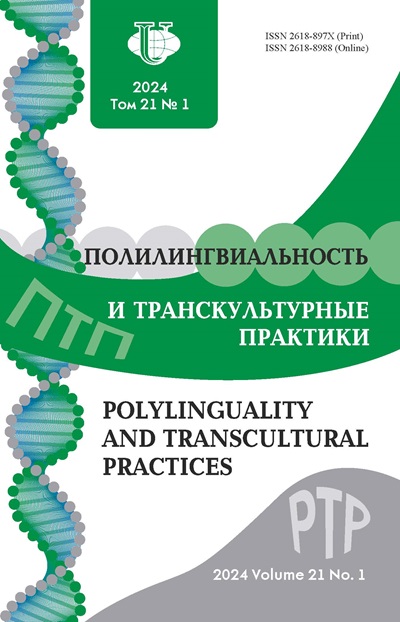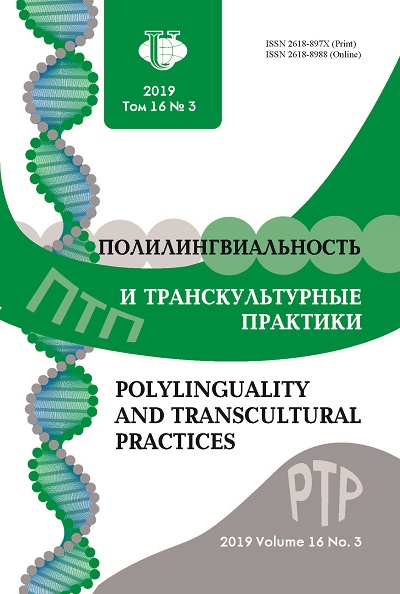To Our Readers
- Authors: Sinyachkin VP1
-
Affiliations:
- Peoples’ Friendship University of Russia
- Issue: Vol 16, No 3 (2019)
- Pages: 306-309
- Section: To our readers
- URL: https://journals.rudn.ru/polylinguality/article/view/21819
Cite item
Full Text
Abstract
Full Text
“Peoples’ Friendship University of Russia is a great place to study languages in contact, including within a specific linguistic personality”, noted Steven Kellman, a professor at the University of Texas at San Antonio, a world expert in translinguism and intercultural communication (we are happy to publish his article, prepared especially for our journal, in this issue). Indeed, the university has for many years been a meeting place for languages and cultures. Students in its walls are representatives of different countries, and the majority of them are natural bilinguals due to various socio-historical factors. We live in the world where linguistic personality (and we are now talking about a universal category) must accept the challenge of time and become qualitatively more complicated. Without knowledge of the second, and often the third, and fourth language, it is difficult to imagine a successful specialist functioning effectively in the global social systeml. And the matter is primarily in the cultivation of inner tolerance in ourselves, which is promoted by going beyond the limits of a single language system. That is why the Department of Russian language and intercultural communication actively develops bilingual directions in several applied aspects. The first one is methodical. For many years we’ve been developing textbooks on the Russian language for different ages and levels of training. A child immersed in the language climate of another country (as is the situation with the children of compatriots abroad, including Germany, Italy, the Baltic countries, etc.), it is important to learn the language along with its feeding culture. The principle of immersion into the world of the Russian word is also embodied in textbooks for students, such as “Forming Images of Language Consciousness in the Process of the Russian Language”. Language and culture are inextricably linked. Everything that has been accumulated by the culture over the millennia of its existence is reflected in the images of consciousness formed as a result of human activity. The texts developed by the specialists of the Department take into account this fact. The most important direction of the Department is a scientific study of bilingualism. The large-scale December conference under the auspices of MAPRYaL, which is held at RUDN every year and has an international status, is devoted to a comprehensive understanding of this phenomenon. Originally conceived by prof. Uldanai Bakhtikireeva as a contest platform for the exchange of views on the nature of bilingualism and language contacts, the conference eventually became one of the largest in the CIS in terms of the stated problems. The geography of the participants is very wide: scientists from the CIS countries, China, Greece, Italy, Slovakia, France, the USA, etc. make presentations. With the support of the department, an annual conference organized by the Russian Academy of Sciences, “The life of a Language in Culture and Society” is held, where special attention is paid to issues of bilingual language consciousness. An important role in the development of the bilingual direction of the department is played by the student conference “Languages and Cultures All Over the World”. Intercultural communication”, the results of which are annually published. Young researchers introduce facts and observations from their own languages and cultures into understanding of the phenomenon of bilingualism. As a result of it a new knowledge and a more complete understanding of global - universal - communication is born. An important role in the study of bilingualism and transcultural practices is also played by our journal. We are convinced that bilingualism can and should become natural - even in those cases when students learn Russian from completely different language and cultural realities. To do this, we only need to overcome the closure of the usual educational paradigm and arm outrselves with new approaches, on which the editorial board works.×
References















